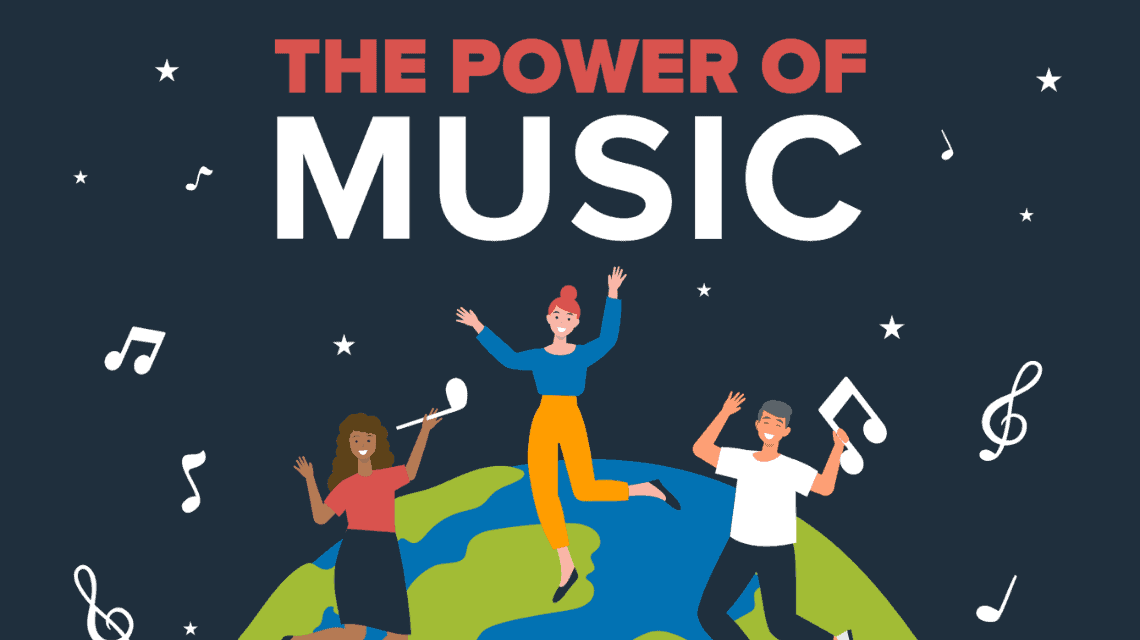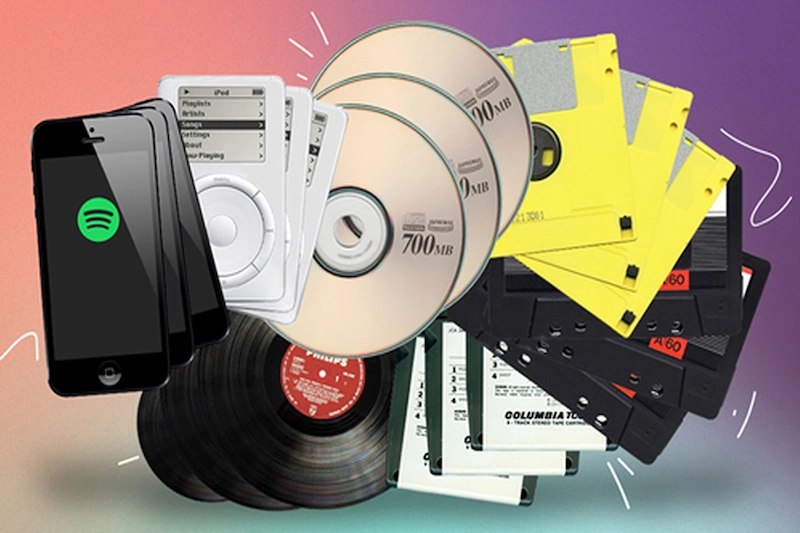The Power of Music:
People from all walks of life can connect to music because it is a language that has no borders. You’ve probably noticed the tremendous effect music can have on your mind and emotions, whether you’re a music fanatic or just like to hum along to your favorite songs. The intriguing world of music’s power will be explored in this essay, along with how it may affect your emotions, improve your mental health, and even improve your cognitive abilities.
The Emotional Connection
Music and Emotions: An Intricate Dance
Music has a remarkable ability to generate emotions, from the soaring melody of a happy pop song to the melancholy notes of a deep ballad. Have you ever experienced crying while listening to a depressing music or a sudden rush of delight when your favorite song plays on the radio? These feelings aren’t just a coincidence; they’re the product of a sophisticated interaction between music and your brain.
According to studies, listening to music can directly stimulate the limbic system of the brain, which is in charge of processing emotions. Dopamine, commonly referred to as the “feel-good” hormone, is one neurochemical that is released in response to music, which can heighten emotional experiences. This explains why music is frequently incorporated into films, television shows, and even advertising to increase their emotional impact.
Stress Reduction and Relaxation
Stress and anxiety are frequent companions in the fast-paced world of today. Fortunately, the ability of music can save you. It has been demonstrated that relaxing music, including classical music or nature sounds, can lower stress levels. It can provide a therapeutic respite from the stresses of daily life by reducing blood pressure, heart rate, and muscle tension.
Music and Your Mind
Enhancing Cognitive Abilities
Many studies have been conducted on the relationship between music and cognitive ability. Many studies have demonstrated that early musical exposure can have a significant impact on brain development. Youngsters who learn to play an instrument frequently have a higher IQ, better memory, and superior problem-solving abilities.
Music can increase concentration and productivity in adults. Many people discover that listening to background music while they work or study improves their concentration and keeps them motivated. The “Mozart effect,” which suggests that hearing Mozart’s music momentarily improves spatial-temporal reasoning abilities, lends more credence to the hypothesis that music might have a favorable impact on cognitive processes.
The Healing Power of Music
Music Therapy: A Therapeutic Approach
The healing power of music is not a new concept. There is historical evidence of its therapeutic use going back to early human cultures. Today, a number of physical and psychological disorders are addressed using music therapy in a variety of healthcare settings.
Certified music therapists collaborate with patients in healthcare settings to design personalized musical interventions. For people dealing with health issues, these therapies can help manage pain, lessen anxiety and despair, and enhance overall quality of life. Those with Alzheimer’s disease, autism, and those recuperating from traumatic events benefit greatly from music therapy.
Frequently Asked Questions
Q1: Can music really change my mood?
Absolutely, music has the ability to affect how you feel. Slower, calming melodies can help you relax and decompress, while upbeat and upbeat music can boost your mood.
Q2: Are there specific types of music that are more effective for relaxation?
Different people find relaxation in different types of music. However, classical music, ambient sounds, and instrumental tracks are often recommended for relaxation purposes.
Q3: How can I incorporate the benefits of music into my daily life?
You can easily incorporate music into your daily routine by creating personalized playlists for different moods and activities. Whether it’s a workout playlist to boost your energy or a calming playlist for bedtime, music can enhance various aspects of your life.
Conclusion
The power of music extends far beyond mere entertainment. It has a profound impact on your mind and mood, influencing emotions, enhancing cognitive abilities,





